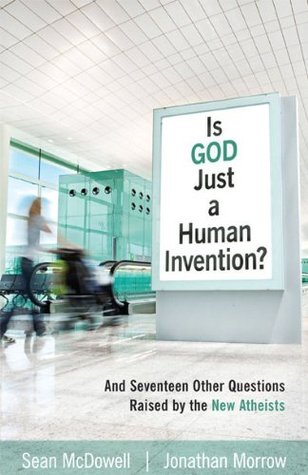More on this book
Kindle Notes & Highlights
Read between
July 10 - July 31, 2019
As Ed Komoszewski, James Sawyer, and Daniel Wallace conclude, “Only after the rise of Christianity did mystery religions begin to look suspiciously like the Christian faith.”
But the alleged similarities, as well as the language used to describe them, turn out to be fabrications of the modern scholar and are not part of the original myth.
http://www.equip.org/articles/was-the-new-testament-influenced-by-pagan-religions-
“Before the destruction of the First Temple, wherever we dig, in whatever part of the Judean country, we find sanctuaries, and, more often, we find hundreds and thousands of figurines [idols], even in Jerusalem itself…. We are speaking about thousands before [Jerusalem’s destruction] and nothing—completely nothing at all—after.”
the paralytic was healed and forgiven. The point was this: anyone could have said that the paralytic’s sins were forgiven, but how would anyone have known that it really happened? Jesus gave a visible demonstration of his authority, proving by the miracle that he could also forgive sins.
Truth is exclusive by definition. And every belief system—even atheism—makes truth claims.
Reinventing Jesus: How Contemporary Skeptics Miss the Real Jesus and Mislead Popular Culture.
Alister McGrath, Dawkins’ God: Genes, Memes, and the Meaning of Life
First and foremost, these are historical documents and should be considered as such. One can approach them in this way whether or not one thinks they are the inspired Word of God (that is a further commitment that goes beyond historicity).
Robert H. Stein, “Criteria for the Gospels’ Authenticity,” in Contending with Christianity’s Critics: Answering New Atheists and Other Objectors,
Graham H. Twelftree, Jesus the Miracle Worker: A Historical and Theological Study
“By ‘formal’ here, I mean that there were specific practices employed to ensure that tradition was faithfully handed on from a qualified traditioner to others.”
Why I Am a Christian: Leading Thinkers Explain Why They Believe,
[why it matters] FINDING REAL LIFE Little did I know when I started college that I would be doing what I do now. I was headed toward a career in radio, TV, and film, hoping to be a sports broadcaster or work in a sports department. I was an officially declared agnostic. I grew up in a church where belief in the resurrection of Jesus was optional. I thought Jesus was a great cultural figure who served our culture as a prophet in challenging us to live well before God. I knew that much, but was not sure how much of it I believed, including what one could believe about the Bible—a valuable book
...more
This highlight has been truncated due to consecutive passage length restrictions.
(I share part of my college journey in my book Welcome to College.)
www.thinkchristianly.org,
More Than a Carpenter,
started reading books by Christian apologists such as J. P. Moreland and William Lane Craig. I also read skeptics such as Michael Martin (The Case Against Christianity) and Dan Barker (Losing Faith). I had to read as much of both sides as possible.
“Yes, but why do you want to look for divine action?” Dawkins demanded. “For the same reason that someone might not want to,”
Thomas Nagel, candidly admits, I want atheism to be true and am made uneasy by the fact that some of the most intelligent and well-informed people I know are religious believers. It just isn’t that I don’t believe in God and, naturally, hope that I am right in my belief. It’s that I hope there is no God! I don’t want the universe to be like that.
The choice to believe or not believe is never just a rational decision.*
Tim Keller observes that our beliefs are comprised of three kinds of reasons.8 First, there are rational reasons that have to do with weighing the evidence and arguments for and against a particular belief (much of this book deals with rational reasons for or against God). Reason is very important and is consistent with faith, but reason alone does not tell the whole story. Next, there are personal reasons that involve our experiences, disappointments, achievements, and desires. While much harder to quantify, personal reasons are shaped—but not determined—by what we have experienced and how we
...more
This highlight has been truncated due to consecutive passage length restrictions.
We have not found the New Atheists’ arguments against Christianity compelling (in fact, many of their objections appeal to emotion rather than to reason).
We challenge you to ask yourself a courageous question: “Would I at least want it to be the case that Jesus was who he claimed to be?” In other words, “Would I want it to be the case that forgiveness, restoration, and purpose are actually possible in this life and the next?”
“There is no way to God that bypasses the call to let go [i.e., to choose to trust him]. You may have many intellectual doubts, and it is really important to be honest about those, to talk about them and study. However, thinking and studying alone never remove the need to choose. The question of faith is never just an intellectual decision.”
More Than a Carpenter:
The God Question: An Invitation to a Life of Meaning.
James S. Spiegel, The Making of an Atheist: How Immorality Leads to Unbelief


